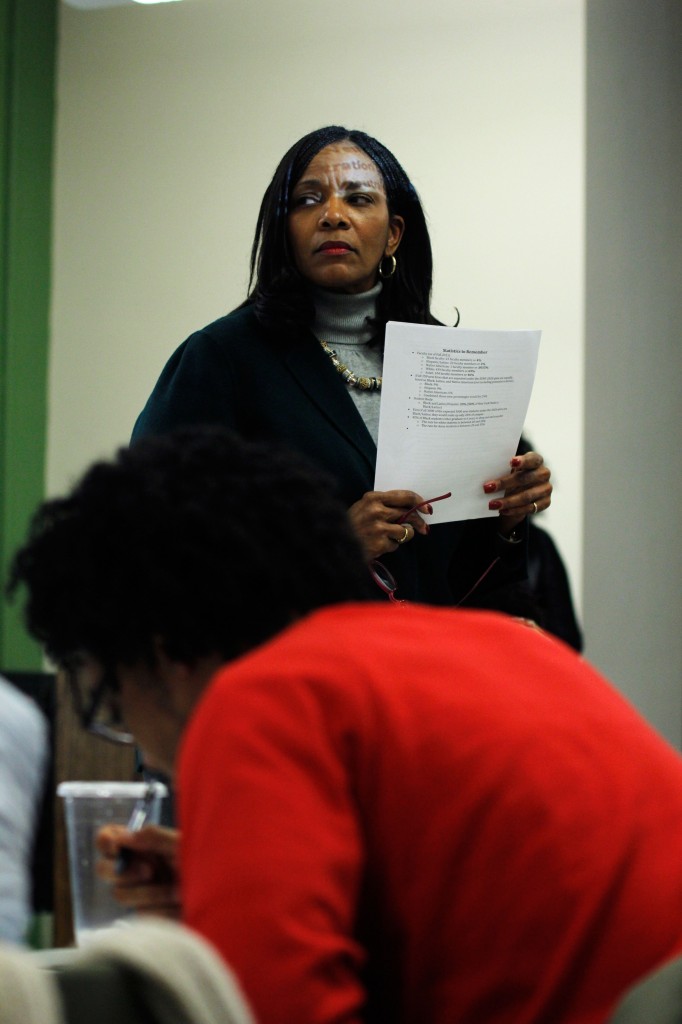
For the second time in three weeks, the Office of Diversity, Equity and Inclusion (ODEI) met with students and faculty Friday evening to review the demands for improving campus diversity released last semester by group Students for Change.
The last meeting between administrators and students resulted in disagreement over the event’s structure. Members of Students for Change argued that it was not conducive to an open dialogue between the groups and administrators, and members of the group walked out before the event began.
Friday night’s Town Hall Forum, held in the Old University Union, provided a platform for members of various campus groups like the Black Student Union, the Speech and Debate Team and the College Democrats, to voice frustrations over the administration’s responses to what they see as race-based threats and a lack of diversity on campus.
The meeting began with Chief Diversity Officer Valerie Hampton reviewing the demands released last semester, which range from a more diverse hiring process to required cultural competency training for faculty and cultural competency classes for students.
Hampton said that more had been done regarding diversity under Binghamton University President Harvey Stenger’s three-year tenure than before in her 30 years working at Binghamton University, and that she and the administration were willing to work with students.
“What I’ve heard all evening is what we’re not doing, what there needs to be more of, what we can do less of, that we need to set benchmarks,” Hampton said. “But when I say I need you to join me, you tell me no.”
Hampton also addressed the low numbers of faculty of color at BU, which she attributed to lack of resources in their department to make competitive offers.
“I’m going to be candid about this — we are a work in progress,” she said. “The change that you’re talking about is not something that you can snap your fingers and make it happen.”
However, after discussing the first of dozens of demands, students requested they skip the overview and begin the question-and-answer session.
“We are tired of holding Town Halls and hearing similar stories year after year,” said Epiphany Munoz, a sophomore double-majoring in sociology and Africana studies. “This fatigue has led to action. As we have listened to students’ stories, we realized that if these issues were ever going to end, we cannot rely on the times to change.”
Though Students for Change reserved seats for administrators such as Vice President for Student Affairs Brian Rose, Vice President for Academic Affairs Donald Nieman and President Stenger, only representatives from ODEI were in attendance.
In addition to students, a number of faculty members were present to voice their dissatisfaction with the administration. Sociology professor Kelvin Santiago-Valles spoke about police intimidation and ignorance toward both students and faculty on campus, and the administration’s failure to deal with, or recognize, it.
He said the ODEI was nothing but a buffer zone between the students and the administration, and their lack of communication with unhappy students and faculty had to improve for any change to occur.
“The issues and protests last semester are an indication that the existing committees and practices don’t work,” Santiago-Valles said.
The meeting wrapped up with promises from ODEI to facilitate a meeting with Stenger to discuss the results of the campus climate survey taken two years ago, which was an assessment of the sentiments of various groups by gender, race, sexuality or ethnicity. The meeting is tentatively set for this week.


